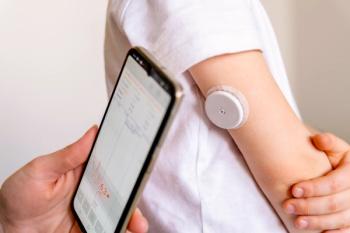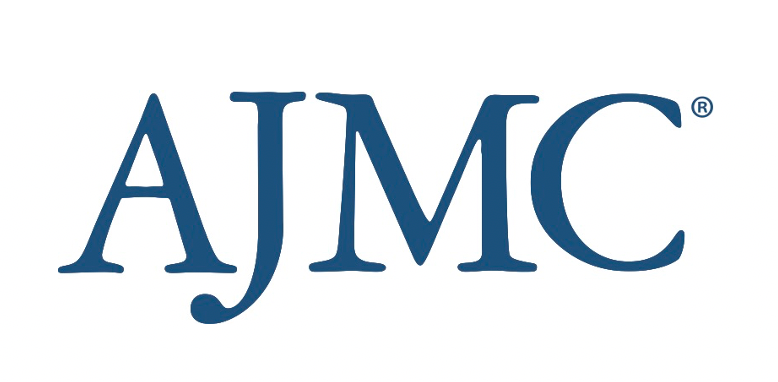
Diabetes
Latest News
Latest Videos

Podcasts
More News

Interviews highlight the importance of culturally-tailored diabetes education to address health care disparities in the Mexican American community.

New research found that people who routinely eat high amounts of red meat have a 62% higher risk of developing type 2 diabetes, supporting dietary recommendations to limit red meat consumption.

Among individuals with a diagnosis of type 2 diabetes across the United States, income level, hemoglobin A1c, and comorbidity burden were the primary patient-level drivers of the use of newer antidiabetic agents.

Blood tests offer a less invasive and more accessible means of detecting Alzheimer disease; Democrats address a year-long Adderall shortage; A new study shows significantly improved clinical outcomes in Type 2 diabetes management with a digital behavioral therapy app.

Ischemic and coronary heart disease were the 2 major cardiovascular disease (CVD) subtypes contributing to hospital admissions among patients with diabetes.

Annualized costs for the 24-month study period were highest among patients with both NASH and T2D, highlighting the incremental cost of adding an additional diagnosis for comorbid NASH or T2D.

Matthew Crowley, MD, MHS, associate professor of medicine, Duke University School of Medicine, discusses telehealth initiatives at Duke Health, as well as overcoming virtual challenges and barriers that underserved and underinsured patient populations who need diabetes care face.

This approval marks the fourth endorsement by the FDA for empagliflozin, all of which have been linked to the EMPOWER program.

Susan Spratt, MD, senior medical director, Duke Population Health Management Office, breaks down the the prevalence of diabetes in the United States and discusses current diabetes initiatives at Duke Health.

This study examined how inclusion of different provider specialties affected Continuity of Care Index values, year-to-year stability, and association with emergency department visits.

However, women with type 2 diabetes and polycystic ovary syndrome (PCOS) in pregnancy did not have worse neonatal outcomes, a study found.

New research suggests an association between gestational diabetes history and mortality over 30 years, regardless of whether it manifests into type 2 diabetes.

A patient-centered approach on top of a multifactorial approach will help patients adhere to lifestyle modifications, said Nikolaus Marx, MD, professor of medicine/cardiology and head of the Department of Internal Medicine, University Hospital Aachen, Germany.

Analysis of claims data showed reduced utilization and costs among patients with nonintensively managed type 2 diabetes using self-monitoring of blood glucose compared with continuous glucose monitoring.

A statistical model based entirely on claims data can accurately predict 30-day hospital readmission in Medicaid patients with diabetes.

Management of empagliflozin and ertugliflozin may be suboptimal following an insurance carrier’s formulary updates. Pharmacists may improve the management.

CMS began reimbursement for non–face-to-face chronic care management in 2015, and results from Louisiana show that it increases outpatient visits but decreases inpatient and emergency department encounters.

According to one panelist, the leading causes of hypoglycemia in older adults are insufficient nutrition and taking the wrong dose or type of insulin, both of which can be addressed at the patient and system level.

A Hong Kong study revealed how much type 2 diabetes (T2D) can increase hospital bed-days based on condition, age, sex, and other factors.

Panelists at the American Diabetes Association 83rd Scientific Sessions explained how time in range is emerging as a crucial target in diabetes management.

Thousands more people filled their insulin prescriptions following the introduction of the cap in January 2023, especially compared to those who were not enrolled in Medicare, a new study finds.

Initiation of sodium-glucose cotransporter-2 inhibitors (SGLT2is) was associated with a 34% lower rate of recurrent gout flare compared with initiation of dipeptidyl peptidase 4 inhibitors (DPP-4is).

With a broad research focus on heart disease risk reduction through the development of novel treatment strategies, Stephen Nicholls, MBBS, PhD, Monash University and Victorian Heart Hospital, Melbourne, Australia. discusses contributions in the space from therapies with systemwide effects.

An analysis of electronic health record data recorded from 2018-2022 within Duke University Medical Center–affiliated diabetes care centers suggests the increased rate of new-onset type 1 and type 2 diabetes observed during the first year of the pandemic persisted through 2022.

While the overall age-adjusted mortality rate for diabetes and cardiovascular disease (CVD) declined between 1999 and 2019, researchers found an average annual 1% increase since 2014.









